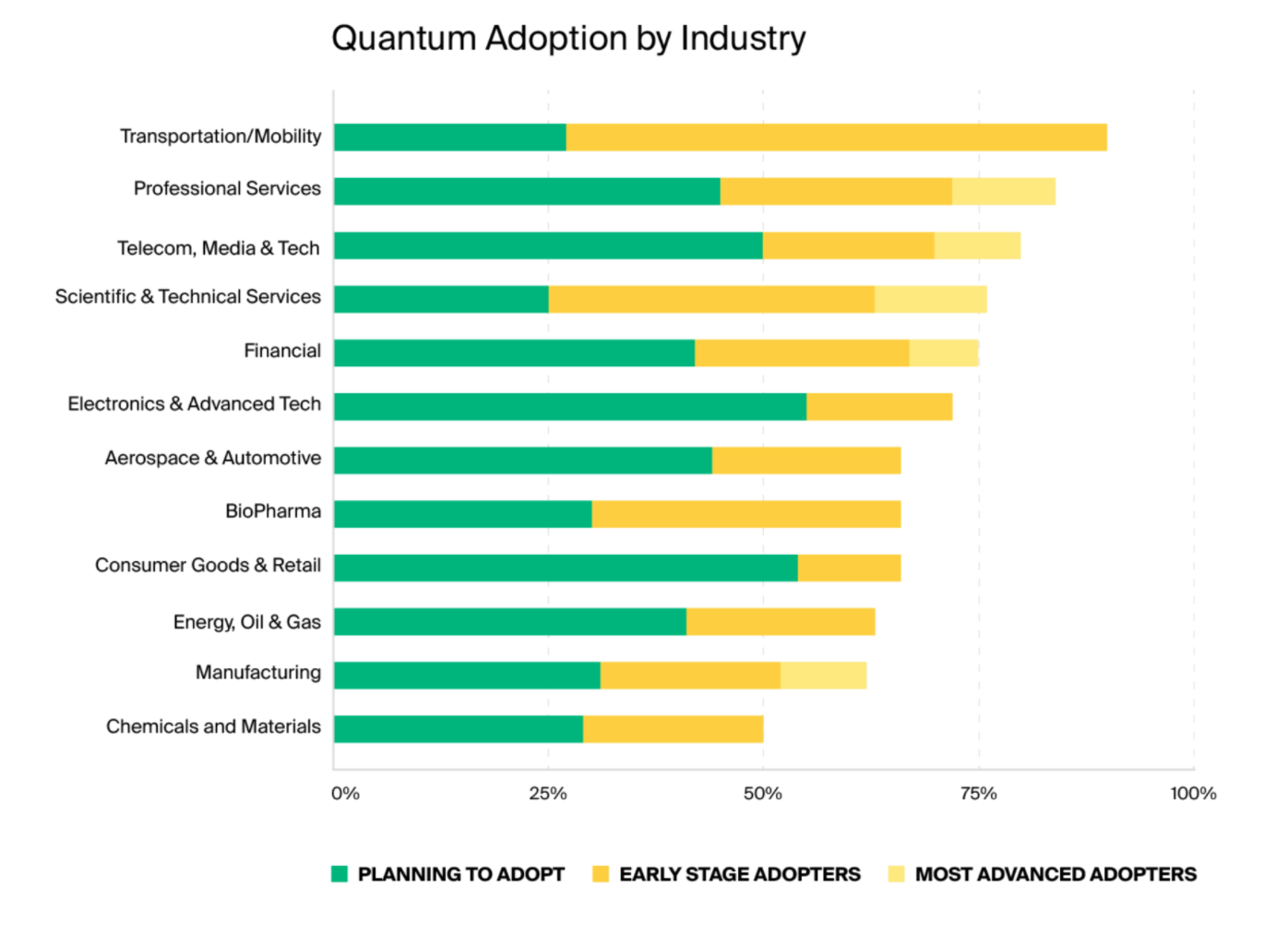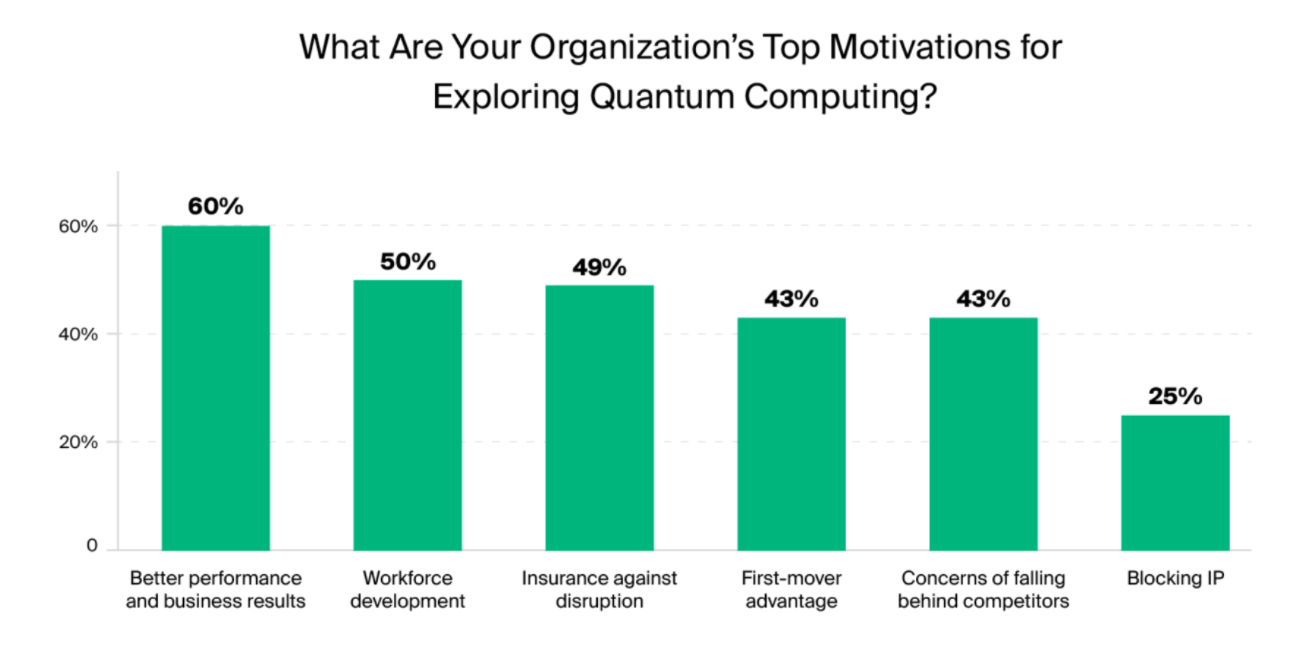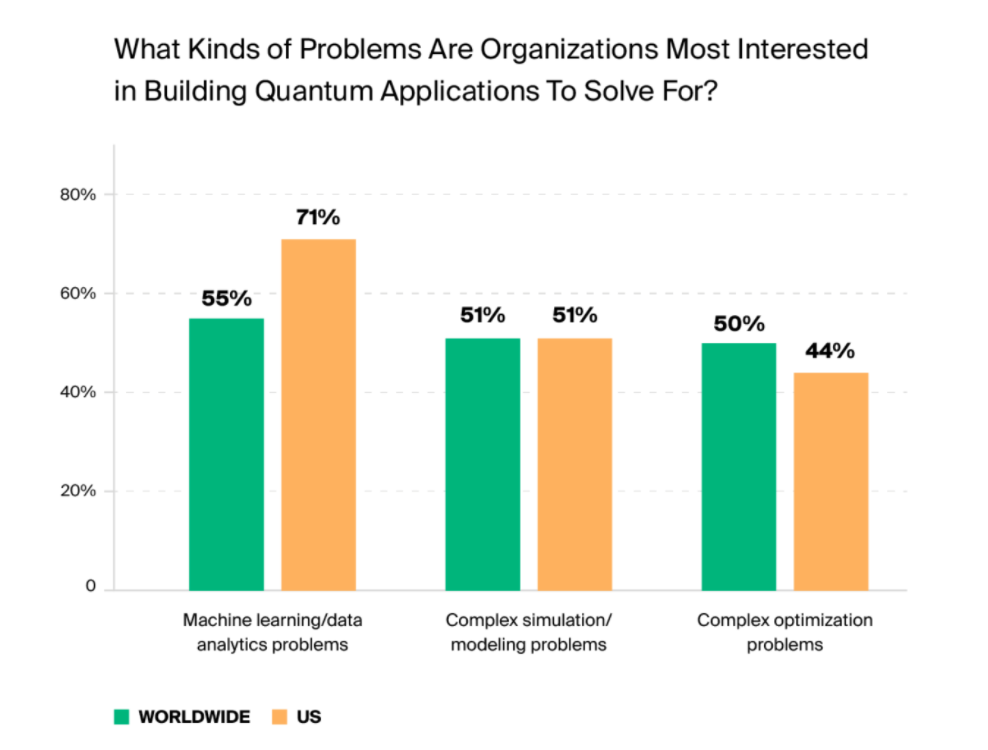Almost a fifth of large companies are investing more than $1m on quantum computing as they race to take a lead in the emerging technology, according to a recent study.
“The inflection point we're seeing is quantum computing breaking out of R&D,” says Katherine Londergan, chief marketing officer of quantum software company Zapata, which commissioned the survey.
“A lot of companies have been doing proofs of concept and playing with open source tools, but now they are ready to create impact with it. They are getting their hands much dirtier. We're seeing that pattern with our customers.”
More than two thirds of large companies are investing or planning to invest in quantum computing, and 28% of those are investing more than $1m in the technology, according to the survey of leaders at 300 global enterprises with revenues of more than $250m.
The transportation industry is the leading sector for quantum adoption.

Leaders are emerging
That two-thirds adoption rate sounds high, admits Londergan, and “adoption” may just be some basic engagement to check out the technology. But what is really significant is the number of companies planning $1m+ investments. That's a big leap from the $100k budgets typically seen in the last few years.
Zapata, which develops quantum software for customers like BASF, BP and BBVA, says it is seeing a bifurcation in customer conversations.
👉 Read: The different types of quantum computer startups, explained
“There are a bunch of customers just kicking the tires. They are checking a box. And then there are others who are playing to win this,” Londergan tells Sifted. “The leaders are starting to separate from the rest of the pack. They are starting to build teams and lock up the intellectual property around this.”
…and they are locking up the IP
Securing the IP around quantum computing is one of the key reasons big customers are increasing their spending on the technology, Londergan says, with quantum becoming the new competitive weapon in the enterprise tech arsenal. It isn’t the top reason companies cited for investing in quantum computing, but it is particularly important for the early adopters who are spending the most on the technology.

There has been a noticeable increase in the numbers of patents filed around quantum computing in the past few years, according to research by law firm Appleyard Lees. 1,787 new patent families were published in 2020, compared with 667 new patent families in 2015.

While many of these patents are being filed by big tech companies like Google, IBM and Microsoft, corporate quantum users are also filing patents to protect the ways they apply quantum computing to their own processes.
24 months to first practical uses
Quantum computers still have a long way to go before they are more useful for companies than classical computers. Most machines in use today are NISQ systems, short for noisy intermediate-scale quantum, with a limited number of qubits — in November IBM became the first company to unveil a chip with 127 qubits, still far short of the 1000+ thought to be needed for a truly useful system. The qubits hold a quantum state for just fractions of a second, making them so error-prone that companies have so far struggled to use them for any real-world applications.
But some companies, like Spanish quantum software startup Multiverse, say that they're already useful enough to have some advantage, if you pick the right problem. Banks are starting to use quantum computing for things like portfolio optimisation and fraud detection — although many remain tight-lipped about their plans.
The first practical uses of quantum computers may come from combining them with classical computers to, for example, improve machine learning.

"We think that today's quantum devices can be strongest in their contributions to sampling. The quantum computer can generate a big injection of randomness and then that’s evaluated by a classical optimisation,” says Londergan.
Zapata believes the industry is around 24 months away from getting systems like this into real customer use.


